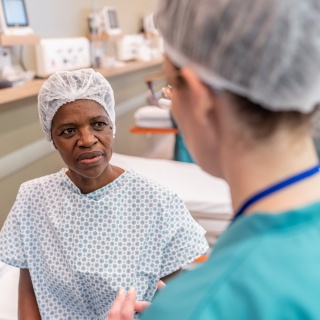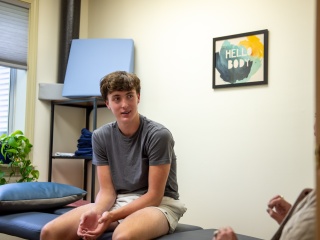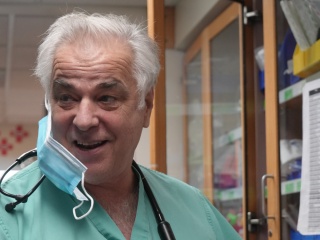
Preparing for Your Surgery
Preparing for Your Surgery at UVM Health
When you or someone you love needs surgery, you likely have many questions: What surgical procedure is best? How will it help me? What should I do to prepare for surgery?
At University of Vermont Health, we understand that undergoing surgery can be a stressful experience. Our surgeons take the time to get to know you and understand your unique health needs and goals when creating your personalized surgical treatment plan. We want your surgery — and your whole experience with us — to go as smoothly as possible.
Below is some helpful guidance to help you prepare. If you have any additional questions about how to prepare for surgery, please talk to your surgeon.
Before Scheduling Surgery
We make sure you have the information you need to make decisions about surgery. Before you schedule your surgery, you will:
Your surgical consultation includes a conversation with your surgeon. This is your opportunity to learn about:
- How surgery can help you
- Types of procedures your surgeon may recommend for your specific needs
- How you and your surgeon will work together to decide if a surgical procedure is right for you
- Possible alternatives to surgery
- Risks and benefits of surgical procedures
- Support and resources you may need after surgery
During your consultation, your surgical care team asks about any medications you currently take. We may also ask about any previous surgeries you’ve had and whether you have other health conditions or allergies.
Depending on the surgery, there may be several pain management options available to you. Your surgical care team will ask if you’ve ever had general anesthesia (medication that makes you sleep and prevents pain) and will help you understand the process. If appropriate, your provider will also discuss the use of local anesthesia or spinal blocks to numb specific areas.
Your care team will also help you make a plan for managing postoperative pain. After surgery, you may be prescribed:
- Narcotic pain medications (opioids)
- Non-narcotic pain medications
- Over-the-counter pain medications (such as acetaminophen and ibuprofen)
You will receive instructions about using pain medications safely after surgery and your surgeon may work with your primary care provider to help manage any postoperative pain. We will ask you if you have ever experienced substance use disorder and tailor your pain management appropriately.
Preparing for Surgery
Your surgeon’s office will give you instructions on how to schedule your surgery. Once you have a surgery date, you’ll have a pre-op phone call with a surgical nurse, who will ask you questions and tell you how to prepare. The nurse will instruct you to:
Talk with your care team about what your recovery might be like. You must plan for someone to drive you home when you leave the surgery center. Depending on your specific needs, you may also need help with:
- Caring for young children
- Doing housework and shopping
- Getting in and out of bed or chairs
- Lifting objects above a certain weight
Your surgical nurse will tell you when to stop eating and drinking before surgery. You may be able to have certain clear liquids until a couple of hours before certain procedures.
The nurse will also tell you if there are specific foods or beverages (like alcohol) that you must avoid in the days before surgery.
You may wonder why you can’t eat or drink before surgery. General anesthesia stops your reflexes, including those that prevent food or liquids from entering your lungs (aspiration). Aspiration causes breathing problems and can lead to serious complications, so it’s important to follow your provider’s instructions.
Tell the nurse about any medications you take regularly. They will tell you which you should continue to take. They will also tell you when you should stop taking some medications.
On the day of surgery, your care team will ask about the last time you took each of your medications. Be sure to have this information with you when you come to the hospital.
It’s important to prepare your skin before surgery to reduce the risk of infection. Plan to shower and use antibacterial soap the night before and the morning of surgery. After your shower on the day of surgery, don’t apply:
- Aftershave
- Creams
- Deodorant
- Lotion
- Make-up
- Perfume
- Powder
Day of Your Surgery
We work hard to help ease your concerns and make sure you know what to expect at every step on the day of your surgery.


